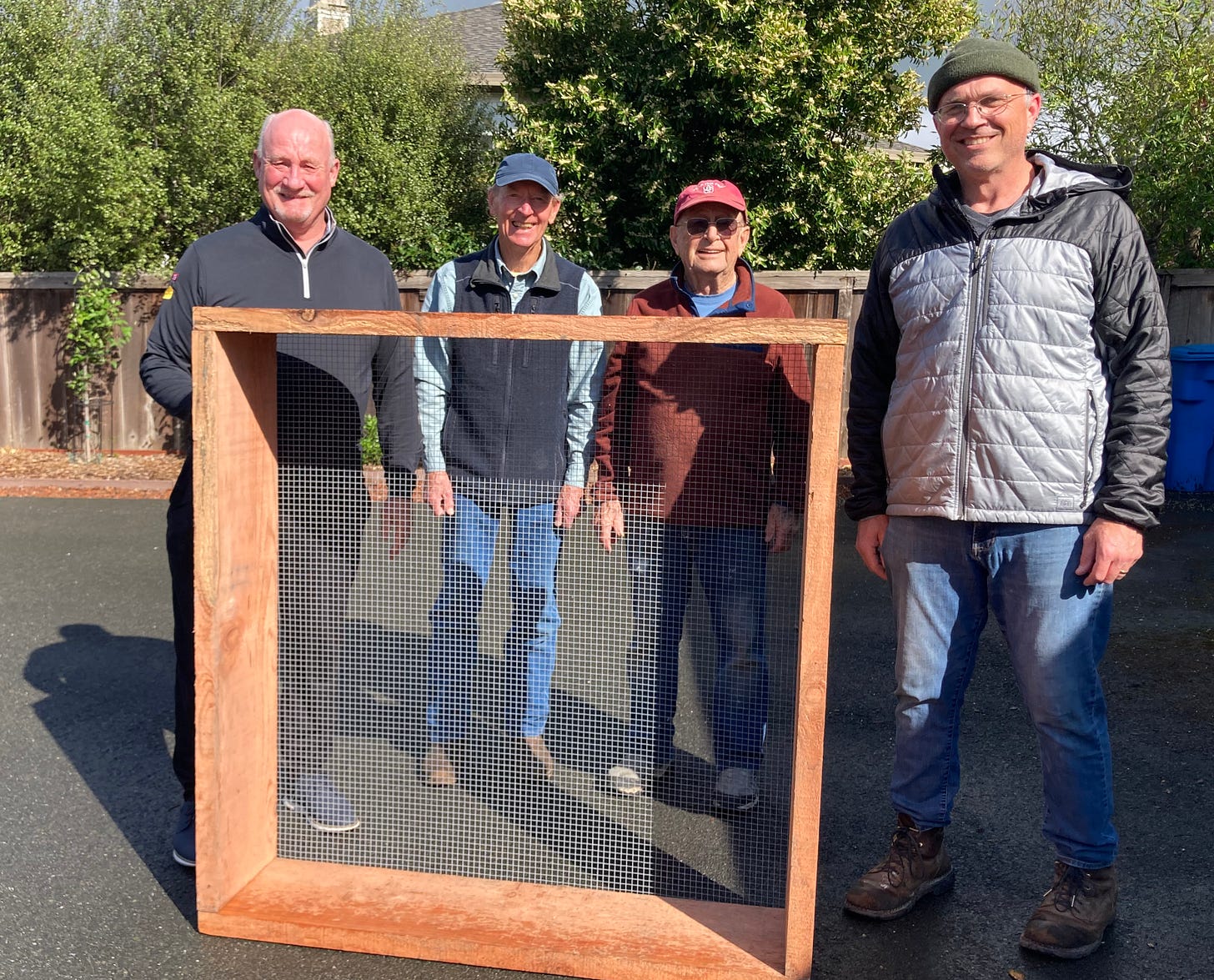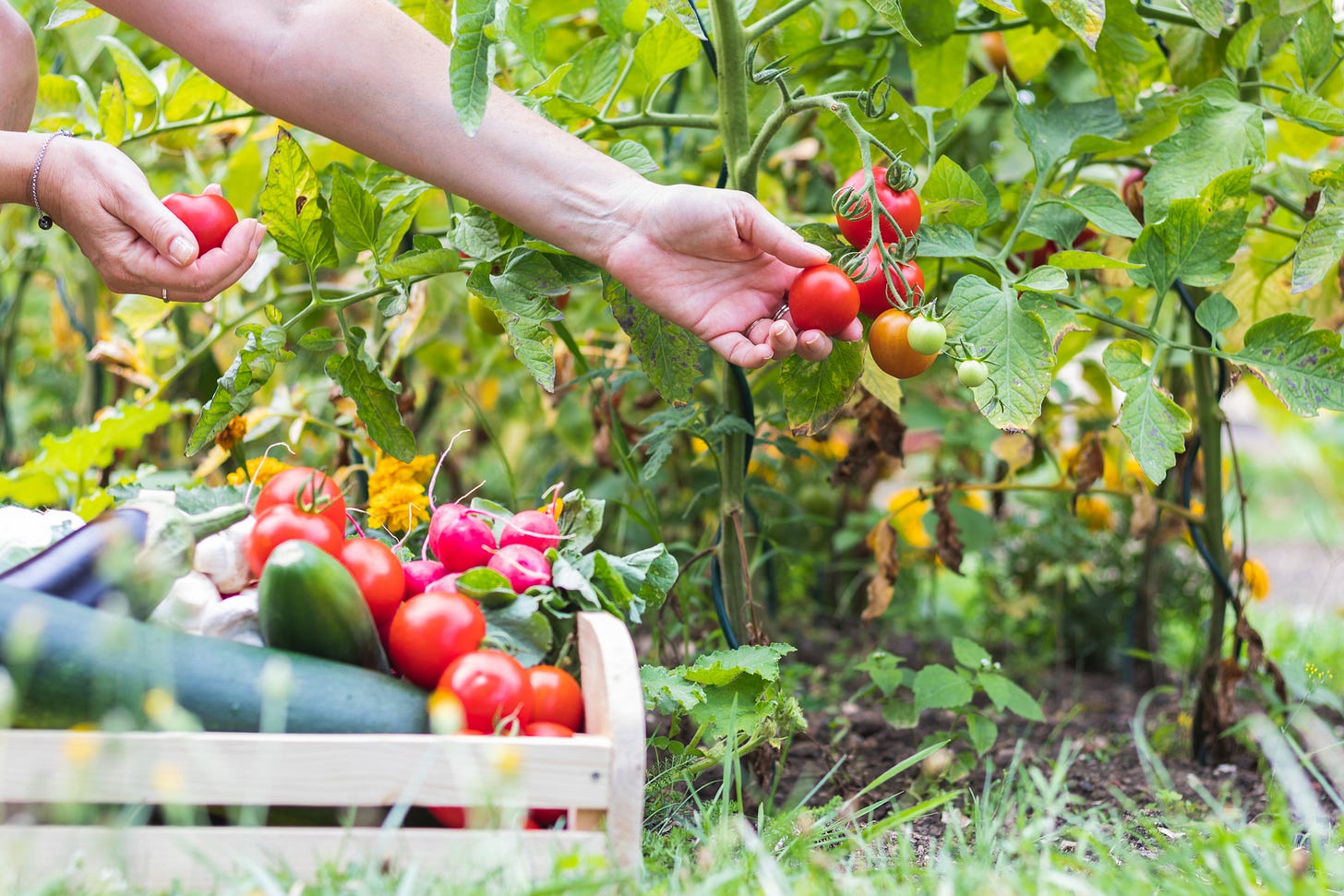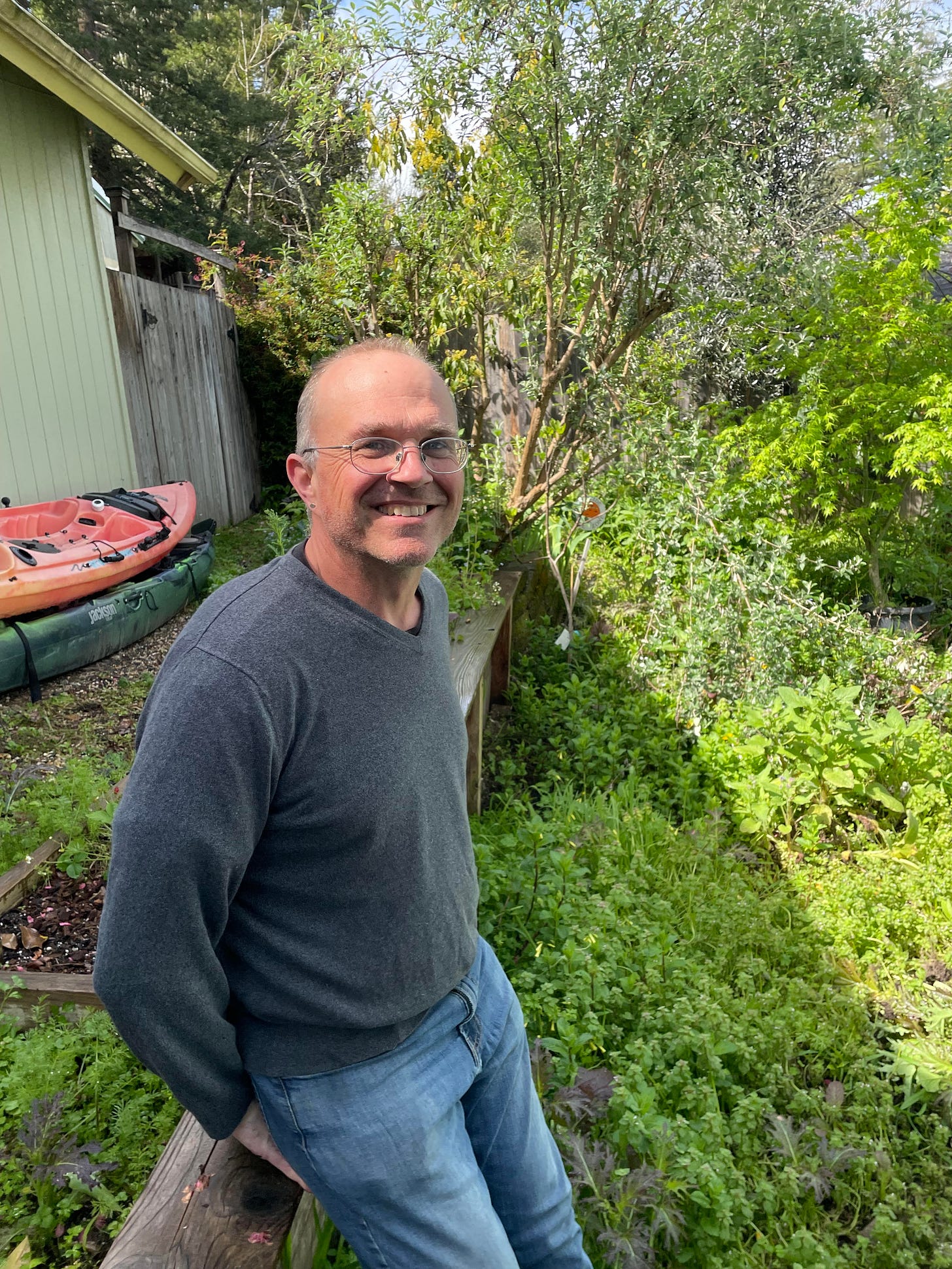Can the Equinox Garden Box Project create more local food gardeners?
A collaboration between Kiwanis Club of Sebastopol and the Sebastopol Grange seeks to build food security from the ground up

On Sunday, April 13, from noon to 4 pm, volunteers from the local Kiwanis Club and the Sebastopol Grange will be building garden boxes to give away to people interested in growing their own food. They’ll even have trucks on hand to deliver the garden box to your home.
The project, called the Equinox Garden Box Build, was the brainchild of Kiwanis member and former Sebastopol City Councilmember Craig Litwin. He reached out to gardener Dena Allen, who also runs the Grange’s Produce Exchange, and a collaboration was born.
“Dena and I met to craft a collaborative project to present to both organizations,” Litwin said. “We crafted a proposal and ran it by our members, who wholeheartedly approved.”
Gardening isn’t cheap—a quick visit to any local organic nursery will prove that— but Litwin hopes that giving folks a garden box to start with will reduce the cost burden. They’re hoping to give the boxes away to those who couldn’t otherwise afford them.
“We determine the need based on financial need. Also, we’re really looking for people who are excited to start gardening and feel like they don’t know where to begin,” he said.
Mostly he’s hoping to create more local food gardeners in the world.
“We find growing food locally and growing habitat for the declining native bee populations, for the butterflies, to be its own service, reducing vehicle-miles-traveled to get the food to our plates, creating insectary plants for pollinators, and building biodiversity locally,” Litwin said. “So we’re looking for folks who really appreciate the action it is to grow habitat and food right in their own yards and turn them on with a free garden box.”
“So really we're looking for folks above all, who have heart and care about growing food and want to plug in and do it in a way that is collaborative,” he continued. “That's the spirit behind the project. Certainly, anyone who feels food impoverished or doesn’t feel secure in the abundance of food available to them. If it’s a struggle to put food on the table, or when times are tight, you have to choose between fresh vegetables and low-cost carbohydrates, there are alternatives, like growing one’s own food.”
Litwin has his own small garden in a side yard at his house in Sebastopol.
“It’s really exciting to do things like eat tomatoes in season, when they’re sweet and fresh, and they haven’t been shipped green, and it’s no diesel fuel to bring it all around,” he said. “You can actually just pick them right from your garden and then share them with people. It gives us all agency to, with each bite, show care for what we put in our bodies, how we treat the planet, and provide for those that we care about.”
This isn’t the first gardening giveaway he’s been involved with.
“I was part of Planting Earth Activation back in 1998-99, and we gave away a couple 100 gardens to folks if they agreed to not spray pesticides, use heirloom seeds, and then they had to give some back to the collective, some seeds and some harvest. We closed High Street and had ten gardens that we put in over the weekend with a bunch of youngsters.”
He hopes this garden giveaway will have that same intergenerational flavor.
A box is not enough
Litwin and Allen know that a garden box does not a garden make. It’s just the start. Allen suggests getting the soil for the garden box at the Sebastopol Compost Giveaway event on Saturday, April 19, 9 am to noon, behind the Sebastopol Youth Annex at 425 Morris St.
“We plan to tell people involved in the garden box build that free compost will be available in Sebastopol,” Allen said. “Volunteers will be on hand if someone needs help getting their bags/buckets of compost into their car. Also, the Zero Waste Sonoma website has a list of permanent compost giveaway sites.”
There’s also a lot of free seed available in Sebastopol.
“The community seed exchange [at St. Stephen’s Episcopal] is providing free seeds to all people,” Litwin said. “They can also go to the Sebastopol library, and they have an old index tower where you used to look up books, but now when you pull that out instead of the little paper catalog cards, they’re now seeds. Pretty fun.”
“The other thing that I encourage people to do is to start a red worm colony with a worm box. One doesn’t need to go out and buy an expensive worm farm—a plastic tray set that becomes garbage in the Pacific Patch at some point. They can actually do it in a simple redwood box. We, in fact, might make a couple of those at the garden box build because they’re so easy. It’s just a regular box. You put the red worms in, you add some kitchen scraps. (Make sure to look up what they like and don’t like; they don’t like citrus, for example.) And put a little straw, a little carbon, kind of underneath that, which could be torn paper or cardboard. And then the worm gets to take a bite of the carbon. They get to take a bite of the vegetable matter. And they go back and forth. They convert it to the most amazing garden gold—worm castings, which they sell for a premium at the store.”
How to participate in the Equinox Garden Box project
There are several ways to participate in this project:
Sign up to receive a garden box to grow more of your own food.
Sign up to help build garden boxes on April 13.
Sign up to donate funds for building a box for someone in need.
Got a truck? Sign up to deliver boxes to homes.
Litwin emphasizes that you don’t need to be a carpenter to help build the garden boxes.
“We have positions for building teams so the people who want to come out and participate, it doesn’t take any experience at all. You can come out and learn,” he said. “We have six different group leaders who will be facilitating those groups. So we’ll start with a safety orientation. We’ll provide some basics in carpentry and then break into smaller groups to build the boxes.”
Sign up here to get a box or volunteer to help build them. For questions, email Dena Allen at produce@rahus.org.




So glad to hear about this. Thank you to the Kiwanis/Grange/volunteers offering this service. We should all be growing food.